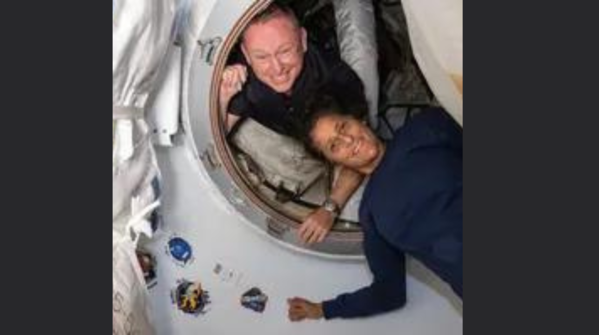- News
- lifestyle
- health-fitness
- health-news
- Experts say that NASA astronauts Sunita Williams, Butch Wilmore might have these health issues after reaching earth
Experts say that NASA astronauts Sunita Williams, Butch Wilmore might have these health issues after reaching earth

Sunita Williams and Butch Wilmore to return to earth after staying on space for nine months
NASA astronauts Sunita Williams and Barry "Butch" Wilmore are scheduled to return to Earth after an extended nine-month mission aboard the International Space Station (ISS). Their return was delayed due to propulsion issues with Boeing's Starliner spacecraft.

Sunita Williams and Butch Wilmore's return date, time
The astronauts are now set to depart the ISS aboard a SpaceX Crew Dragon capsule, with splashdown near Florida expected at 5:57 p.m. ET on March 18. This mission underscores SpaceX's reliability in crewed spaceflight, marking its 11th crewed mission to the ISS, while Boeing's Starliner awaits certification for regular flights.
Egg prices fluctuate in the US: Why is it happening? Protein alternatives to try

Microgravity has disastrous effect on muscle and bone
According to Dr. Akhilesh Yadav, Associate Director- Orthopaedics & Joint Replacement, Max Hospital Vaishali, "Microgravity, felt by astronauts during space travel, has a severe effect on human health because Earth's gravitational forces are not felt. Muscle atrophy and loss of bone density are among the primary effects. The muscles and bones become weak because they have no resistance. This increases the risk of fracture and other bone-related problems. Moreover, the cardiovascular system also experiences changes, as fluids move to the upper body, leading to puffiness in the face and higher pressure on the eyes, resulting in vision issues."

Microgravity alters the immune system
"Microgravity also has implications for the immune system, and astronauts become more prone to infections. The vestibular system, which is responsible for balance and orientation in space, is disturbed, resulting in motion sickness and disorientation. It can also change gene expression and affect mental health, causing stress and anxiety brought about by isolation and confinement. Sleep disturbances also arise because of the lack of natural day-night rhythms," says Dr Yadav.

Microgravity can affect the brain and neural connectivity as well
"Microgravity has a profound impact on the human brain, resulting in structural and functional alterations," says Dr. Aditya Gupta, Director- Neurosurgery & Cyberknife, Artemis Hospital Gurugram. "It is noted that exposure to microgravity for extended periods can result in fluid shifts, elevating intracranial pressure and producing symptoms such as headaches and visual disturbances. The absence of gravitational force impacts neural connectivity, which may have effects on cognitive functions, balance, and coordination. Also, astronauts can suffer from neuroplasticity, in which the brain becomes accustomed to the changed environment but can result in readaptation problems with Earth's gravity. These alterations increase the necessity for sophisticated countermeasures to preserve the health of the brain under long-duration spaceflight," he adds.

"I'm feeling pretty normal"
Frank Rubio, who just like Sunita and Butch went for a 6-month space mission and had to stay for 371 days, said it takes two to three months to get yourself back to where you were pre-flight. In an interview with TIME, Rubio said, "I'm feeling pretty normal. At this point, I feel like I'm back to 90-95%. So lots of exercise, lots of testing, and science."
He also spoke about how he craved salad in space and his first meal after reaching earth was a fresh plate of salad. “What most of us crave when we get back is fresh food, fresh fruits, vegetables. I kept saying that I wanted a salad,” he said. His return was delayed by six months because of a coolant leak on the spacecraft.









